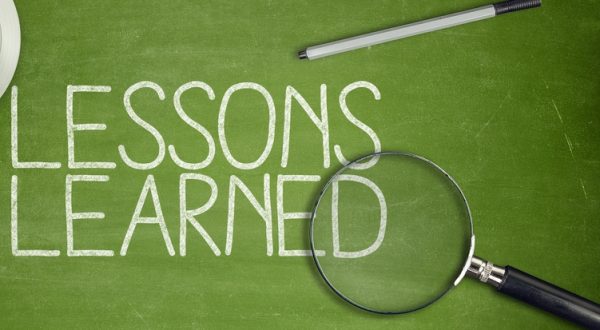The Gard P&I Club has issued a case study as part of its loss prevention initiatives to provide lessons learned for onboard safety meetings. This time, the case illustrates what went wrong during an incident that took place in the Suez Canal with the aim to raise the discussion and perform an onboard risk assessment of the incident and the factors which led to it, based on vessel’s procedures.
The incident
The tanker was on a laden passage from Europe to China, with a draft of 18 mtrs. She arrived at Suez Canal anchorage at 1700 hrs. Instructions by port control were to heave up anchor and have engine st’by at 0400 hrs the following day and be prepared for the pilot to board. At 0400 hrs, vessel was informed that due to bad weather pilot will board the vessel at buoy HM150, which was well inside the fairway.
Vessel entered Suez Canal at 0615 hrs and had taken her position in the convoy, while still waiting for the pilot. The engine room was manned and the deck crew were st’by on radio to pick up the pilot. When vessel was passing HM150, port control informed that pilot will instead join the vessel further inside the channel, at HM60 marker. Speed and course of the vessel at this time are mentioned in the table below. Current was setting north east at a rate of 1-3 knots and wind was from north west, BF 5-6. At 0650 hrs, vessel was instructed to proceed at a heading of 196° and reduce the speed to 8 knots so as to maintain safe distance from the vessel ahead. Other vessels in the convoy were also given the same instructions by the port control. Vessel passed HM92 at 0704 hrs and HM80 at 0711 hrs. Speed and course are mentioned below.

At 0720 hrs, while the pilot boat was still on its way, the vessel ran aground outside the eastern limit near marker HM70. Four tugs were needed to refloat the vessel. Diving operations were undertaken to check the damage to the vessel’s bottom and propeller. The chain of red buoy HM70 was found entangled around the propeller. Propeller blades were found to be cracked at the tip and a crack arrestor hole was drilled to stop the its propogation. The entangled chain had to be cut. Whole operation took 4 days.
Some of the observations noted during investigation were:
• Pilot had boarded the vessel ahead at the position given by port control, which was HM150 marker, but own vessel’s pilot had delayed boarding on two occassions citing bad weather, even though she was well inside the channel.
• Master was new in rank and was transiting the Suez Canal for first time in two years. Chief Officer was also not very familiar with the Suez canal. The bridge team was thus relatively inexperienced in Suez transits.
• Master undertook all VHF communications with port control himself. This diverted his attention away from navigation.
• Master did not consider aborting passage at any stage and neither did the bridge team assertively challenge the port control’s decision to delay pilot boarding for their vessel, whilst pilots were infact boarding other vessels in the convoy.
• The wind and current had a significant effect on the ship, which would have been apparent to the bridge team had they also been monitoring the ground vector (COG). A look at the historical AIS track of the vessel ahead, which had similar dimensions, shows she had given substantial counter helm for wind and current to stay in the channel. For example, when she was passing buoy HM92, her heading was 201°, whereas own ship was steering 197° when passing the same marker.
• Company had an in-house ship handling course for all deck officers and masters, but transits through Suez canal were not simulated in these courses. They were also not designed for large vessels. The investigation report and subsequent preventive actions placed a lot of emphasis on this aspect.
The Gard Club suggests that the following topics should be discussed further for increased awareness:
- Discuss the Suez Canal transit requirements with regards to pilot boarding position in normal and heavy weather. Refer the sailing directions and the handbook on Suez Canal rules.
- Discuss how is navigating in confined waters different from navigating in open waters, especially when there is a strong cross current and strong wind.
- Discuss how use of ground vectors can be helpful in confined waters.
- Discuss how tasks, such as position plotting, radio communications, lookout, record keeping etc., are delegated to different members of the bridge team during navigating in confined waters on your vessel? Are there any SMS guidelines for this?
- Discuss the requirements of attending ship simulator courses in your company? Did you find the last ship simulator course you had attended to be appropriate for the kind of vessel you are on currently?
- Discuss what measures would you take if the pilot does not board by a certain point. Would you continue proceeding or abort and turn the vessel around before the vessel passes the point of no return? Also discuss the commercial pressures which might affect the decision making in such a scenario, for e.g. loosing the berthing window or convoy positioning.






























































